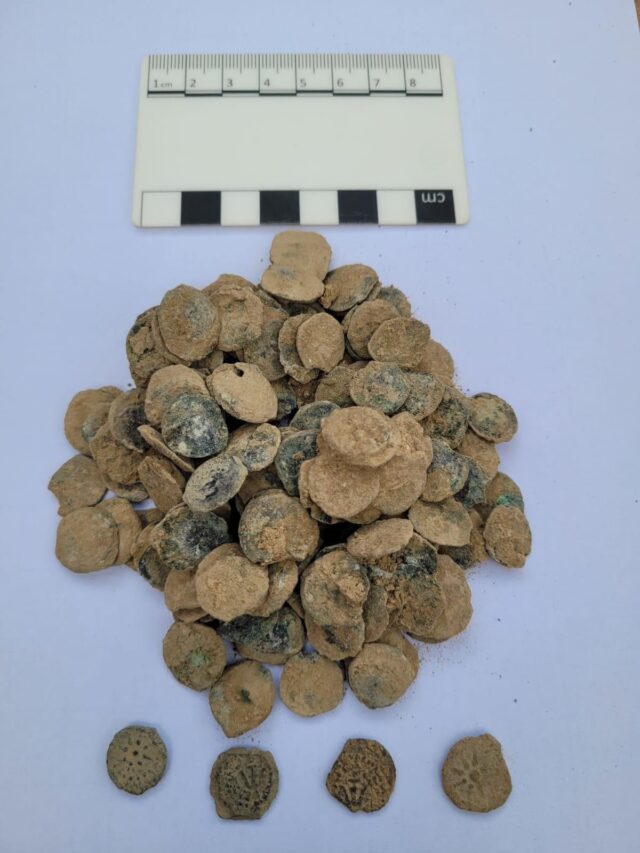Last week Israeli researchers discovered a rare collection of ancient coins and called the find a “Hanukkah archaeological miracle.”
The coins are more than 2,000 years old and are believed to belong to King Alexander Jannaeus, the second ruler of the Hasmonean dynasty that presided over Judea in the final centuries before the Common Period, according to the University of Haifa in Israel.
Archaeologists found the hoard of some 160 coins during ongoing excavations in the Jordan Valley, which stretches between the Israeli-occupied West Bank and Jordan’s eastern border. The project is led by researchers from the University of Haifa and the Zinman Institute of Archeology, the university saying in a press release translated from Hebrew.
The ancient coins were unearthed on Friday, coinciding with the third day of Hanukkah. Researchers noted the importance of that moment, as Alexander Jannaeus was descended from the leaders of a revolt in 167 BC. C. which, according to the Talmud, led to the restoration of the temple in Jerusalem and the first celebration of the Hanukkah holiday.
University of Haifa
Each coin bears inscriptions that include an eight-pointed star and the phrase “King Alexander 25” written in Aramaic, one of the world’s oldest known languages that originated in the region surrounding what is now Syria and is closely related to both with Arabic as with Hebrew. These types of coins date back to approximately 80 BC. C., according to the University of Haifa.
“The place where the treasure was discovered is apparently a way station that until now had not been recognized in investigations,” Shai Bar, one of the excavation leaders, said in a statement to the university. Bar said the station included a purification bath, used for religious rituals, and a water storage area, in addition to other buildings. It is located along a main road leading to the fortress of Alexandrion, built on a mountaintop in the Jordan Valley by Alexander Jannaeus.
University of Haifa
Bar told the university that students and volunteers participated in the excavation that uncovered the monarch’s ancient coins. He said they were particularly excited to find the treasure during Hanukkah.
“This added a special meaning to the holiday for them, even in the difficult days our people are going through right now,” Bar said. “I hope the place becomes a place that draws a crowd and adds to the archaeological and heritage sites of our country.”
Hanukkah began on December 25 this year and is celebrated for eight days ending this Thursday, January 2.




